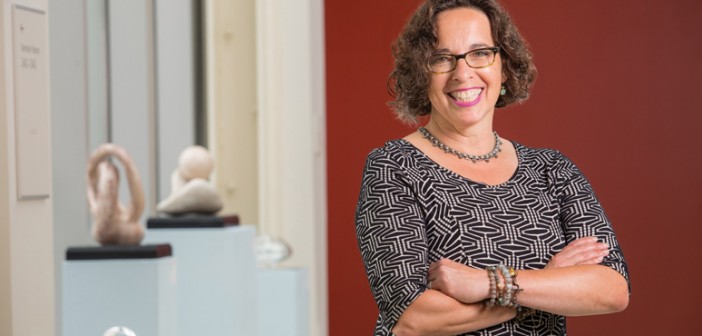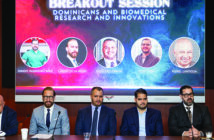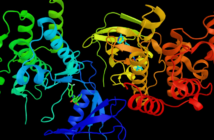With reflective writing, med students learn to combat stress and burnout.
The third year of medical school launches students into a new world, when the realities of their chosen profession, and the weight of their responsibilities, settle on their shoulders. The demands of the work can be overwhelming, and many don’t know how to deal with the stress.
“Medicine has for a long time had a cultural component of ‘suck it up and move on,’” Aaron Kofman MD’14 says. His third-year family medicine clerkship took a different tack: students were encouraged to dwell on their challenges, by writing about and sharing them with each other.
“It was a big deal to have that opportunity then, because you’re so busy, there is so much to talk about, and usually you don’t have a chance to do it,” says Kofman, now a resident at the University of California, San Diego School of Medicine. “It is an incredible way to form professional identity, to grow as a clinician and stay healthy while doing so.”
Reflective writing is a formal part of the curriculum at many medical schools, but its role in professional identity formation—helping students to hold on to their values and guard against cynicism and burnout—may be unique to Alpert Medical School.
“We are thinking right from the beginning [preclinical years]through retirement as professional identity formation,” says Hedy Wald, PhD, clinical associate professor of family medicine. “Guided reflective writing is a vehicle for that.”
Wald, a clinical psychologist, came to Brown in 2005 to teach students in the preclinical Doctoring course and quickly became enamored with the reflective writing portion of the curriculum. “It’s not just journaling,” she says. Becoming a physician is an emotional process, and learning to understand and reflect on those emotions—in writing as well as guided small-group discussions—rather than push them aside helps students build long-term resilience while maintaining sensitivity toward their patients.
“Where reflection ends up being important is that it encourages you to think about, to reflectively self-assess where things are going,” says David Anthony, MD, MSc RES’00, associate professor of family medicine, who in 2009 worked with Wald to incorporate reflective writing into the family medicine clerkship curriculum.
“When an experience doesn’t go well, rather than sallying forth and forgetting about it, if you have the habit of mind to say, ‘That didn’t feel good; how can I think about this in a different way, how could I have said something differently, how could I not let this bother me as much as it has?’—it helps prevent doctors from becoming burnt out and jaded,” he says.
“In the third year students are already starting to feel like they have to calibrate their emotions and empathy,” Wald says. “They’re realizing that lack of calibration can deplete their fuel tank,” and must learn to appropriately distance themselves emotionally from their patients, without sacrificing empathy.
Working off formal prompts, students may write about a challenge they faced, a positive clinical experience, or a patient interaction. A few will volunteer to read their reflections aloud to a small group of classmates; guided by Wald or another facilitator, the students discuss their shared experiences. After class the facilitators read the reflections and, using a rubric that Wald developed, provide formative written feedback.
Each step in the process helps different students in different ways: while some may find catharsis in the actual writing, others appreciate having the time to talk through their experiences with their peers. “Med school can be very isolating. You can feel like you’re the only person struggling,” Joanna Sharpless ’10 MD’15 says. “Having the bravery to turn to someone and say, ‘I am miserable, I feel so lost and confused,’ and having them be there for you—as long as you feel there are things in medicine that excite you, you can tolerate those moments of misery.”
Sharpless, who began her family medicine residency at Albert Einstein College of Medicine in July, says the reflective writing, group discussions, and instructor feedback ultimately reinforced her choice of specialty. “It made me feel more like I was among my people and at home,” she says.
Anthony says professional identity formation has turned out to be a residual benefit of the reflective writing curriculum at Alpert Medical School. “We don’t tell [students], ‘Now it’s time for some professional identity formation,’” he says. But as he and Wald have analyzed student narratives over the past couple of years, “we’ve really seen this entire curriculum in a slightly different lens—as a chance for them to develop their identity. I might not have known that was why we were doing it initially, but that’s what they’re getting out of it.”
As the necessity of fostering professional resilience becomes more accepted, the Medical School—and Wald—are at the vanguard of a shift in medical education. Wald leads faculty workshops nationally and internationally on the use of guided reflection to boost resilience, and she was the guest editor of a theme issue of Academic Medicine on professional identity, in June. But research is needed to explain whether, and how, reflective writing and other techniques help health professionals and, ultimately, patients. “That’s the bottom line,” Wald says. “I hope [students]can take this with them, because suffering patients need them.”




